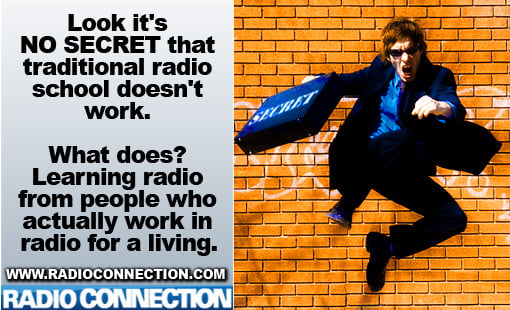Radio Broadcasting Glossary – F
A B C D E F G H I J K L M N O P Q R S T U V W X Y Z
Farm reports – The National Farm Report can be heard weekly on radios across the country weekly and updates crop conditions affected by weather.
F.C.C. – The Federal Communications Commission is the federal agency that is responsible for issuing licenses, rules and regulations overseeing all radio-telephone and television originated signals.
Feed – To transmit a telecast from one station to other stations or networks.
Feedback – An annoying sound caused by amplifying the speaker to the microphone.
FM – A method of impressing data onto an alternating-current (AC) wave by varying the instantaneous frequency of the wave.
FM Blanketing – A form of interference to the reception of other broadcast stations, caused by the presence of an FM broadcast signal of 115 dB (562 mV/m) or greater signal strength in the area adjacent to the antenna of the transmitting station.
Format – The program element; example: A.O.R. M.O.R. Country Western, Jazz, Rock, etc.
Format Clock – A circular diagram like a clock, divided up like a pie, where each piece represents both a radio programming element and its length in a typical hour. This includes songs, commercials, talk time, etc. Directors often use a format clock to create the hour-to-hour flow of radio station’s programming.
Freedom of information – Over seventy countries around the world have implemented some form of freedom of information legislation.
Freeform radio – A specific radio show format approved by a station’s management in which the DJ of the station has complete freedom or control over program content and a tendency to play music that is not usually heard.
Freelance – An individual who is self-employed and not employed by a station.
Frequency – Technically this is an electromagnetic wave frequency between audio and infrared. When used in a programming context, it means the number of times the target audience will be exposed to a message.
Front sell – The introduction of a song that has just started to play, or the on-air personality stating the name of the radio station as the very first thing said. For example, the announcer may front sell the call letters, and then introduce the next song.
A B C D E F G H I J K L M N O P Q R S T U V W X Y Z

